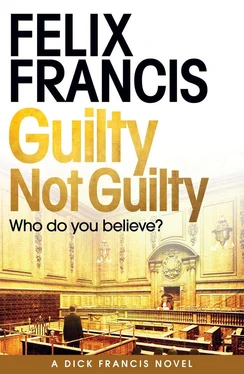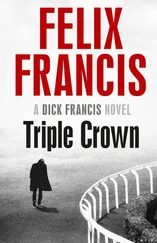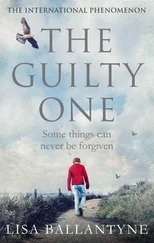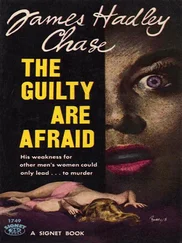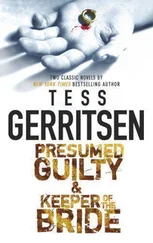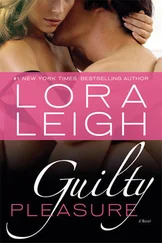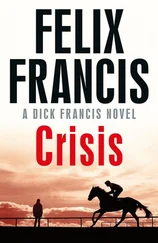I parked as close as I could and shuffled down to the market square.
‘Hi, Bill,’ said my friend, warmly shaking my hand. ‘Haven’t seen you for a very long while.’
‘No,’ I replied. ‘I’ve been rather busy.’
‘I’m so sorry to hear about your lovely wife,’ he said. ‘Dreadful thing. I was so shocked, as I’d been talking to her only a few days before she died. She dropped by for a chat and to buy something.’
He spent several minutes talking about Amelia’s last visit to his stall, not that it made me feel any better. Would I ever get used to her not being around? Eventually, I showed him the broken lock.
‘I can’t match it exactly,’ he said. ‘But I think I can get pretty close. Come again on Saturday and I’ll see what I can find in the meantime.’
‘Thanks,’ I said.
As I drove home, I mulled over what the market stallholder had told me and, instead of immediately going in through my own front door, I went across the road to the Fadeleys’ place and rang their bell.
Nancy answered.
‘Hello, Bill,’ she said. ‘Dave and I have been thinking of you a lot these last few days. You must be pleased with the outcome of the trial. I heard it on the news.’
‘I suppose so,’ I said. ‘At least no one will still think that I’m responsible for Amelia’s death.’
‘Would you like to come in for a cuppa?’
We sat in her kitchen, alongside her vast array of cookbooks, and, while we were drinking the tea, I asked her a question.
After about fifteen minutes or so, I got up to go.
‘Dave will be home from London around seven,’ Nancy said. ‘Would you like to come over and join us for supper? I’m making seared scallops in a champagne cream sauce.’
It sounded delicious and a huge improvement on my usual individual ready meals, but I didn’t want company — not tonight.
And I had far more important things on my mind than eating.
I sat on the cold hard stone kitchen floor of the Old Forge and sobbed.
I had come straight home from Nancy’s house and searched for something and, to my absolute horror, I had found it almost immediately.
Not that I was pleased that I’d found it. Far from it.
It would have been infinitely better if I hadn’t.
For all her mental health problems, and whatever her brother might have claimed, Amelia hadn’t been stupid. Quite the reverse. She had been a very smart lady, very smart indeed. But she hadn’t been able to hide everything — not forever — and not from me.
I couldn’t drag my eyes away from what I’d found. It was only small and I might have never noticed it, that was if I hadn’t been expressly looking for it.
But I had been, and there it was.
Again, I felt sick.
Just like the jury, I deliberated with myself and came to the only logical conclusion from the evidence, a verdict beyond a reasonable doubt.
Amelia hadn’t been murdered at all.
She had committed suicide.
The police were very accustomed to investigating unexplained violent deaths to determine if they were really murders made to look like suicides. But now they needed to have a closer look at Amelia’s death, as I had done, and then they would likely come to the same conclusion as I had, that this had been a suicide made to look like murder.
Was she really that scheming?
Yes, she was . Especially when it came to her brother.
Furthermore, Joe hadn’t been lying after all.
Amelia had indeed called her brother on that Tuesday evening to arrange their strange rendezvous at the disused pub car park in Wroxton for the following morning, knowing that, when she failed to appear, he would eventually drive to our house and find her cold dead body. And she had done that partly to prevent me from having the trauma of finding her, but mostly in the hope and expectation that Joe would be accused of her murder.
She had killed herself at a time when she knew I had the cast-iron alibi of being at a charity dinner in Birmingham, and made it look like murder so I could still collect her life insurance money. Perhaps she hadn’t realised that, by pre-deceasing her mother, Joe would have inherited all of the estate.
But maybe she had.
Had she appreciated how important motive was to the police? Was that, indeed, part of her scheme to frame her brother from beyond the grave?
I thought she had been much better in the few months before her death, and her talk of ‘ending it all’ had seemingly faded. But it had always been there in the background and her mother’s cancer diagnosis, together with Joe’s final hate-filled email, had caused it to rear its ugly head again, only more so.
Amelia had known all about her mother’s cancer — Jim and Gladys Wilson from Weybridge had made that perfectly clear. Had she just not told me in order to prevent me from working out her plan?
I wanted so much not to believe that she had killed herself after all that expensive therapy, and after I had worked so hard to prevent it, but...
Let us consider the evidence.
Amelia was dead.
Of that there was absolutely no doubt. I’d seen her lifeless body with my own two eyes. And she had died of strangulation with our old leather dog lead round her neck — I didn’t doubt the pathologist on that one.
But the man from the market stall in Banbury had told me that Amelia had bought something from him that totally changed everything else.
‘She was after one of those self-locking buckles,’ he’d said. ‘You know the type, like those on a compression strap that you put round a sleeping bag or such when you’re trying to get it really small to fit into your rucksack. She said she wanted it for a belt.’
A belt?
What had DCI Priestly said to me in my first interview with him at Banbury Police Station?
This dog lead was the murder weapon. Mrs Gordon-Russell was found with it still tight round her neck.
Tight.
That had been the important word, but I hadn’t realised it at the time.
Then I’d been across to talk to Nancy, to ask her a single question about that Tuesday evening.
‘Yes,’ she’d agreed. ‘I did see Amelia go out in her little car shortly after we’d walked back from the pub. But she was only gone for an hour. I saw her coming back again later. She put the car away in the garage.’
Nancy was ever the inquisitive neighbour, watching all the village comings and goings.
Only gone for an hour .
Amelia might have nipped out to the shops for milk, or for bread, or for any number of other things, but I knew she hadn’t. An hour was just long enough to have driven over to her mother’s house and used the landline there to call her brother, a call the prosecutor had claimed in court was made by Mary.
And Amelia had made sure that she’d left her mobile phone at home.
Normally, she didn’t go anywhere without her phone, certainly not to the shops, not even to the loo. It had been like an extension of her own arm. The fact that records showed her phone hadn’t moved that night had made me believe that she hadn’t either.
I’d been wrong.
And the final piece in this particular circumstantial jigsaw puzzle was the thing I’d just found.
I sat on the kitchen floor and stared at it, willing it not to be there.
But it was.
A small, almost insignificant blemish in the woodwork between the frame and the door from the kitchen to the hall. A bruise in the paint about five feet from the floor, just below the top hinge. A mark the width of the dog lead.
Amelia had pinched the leather between the door and the frame to hold it tight and had then used that anchor point to jerk the ligature very tight around her own neck, and the self-locking buckle had done the rest.
Читать дальше
